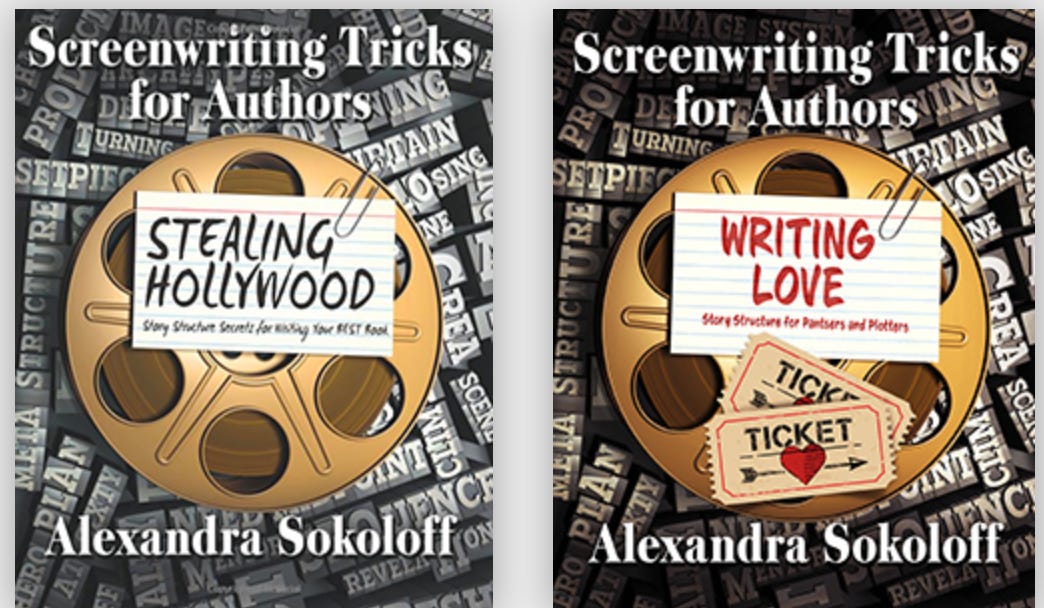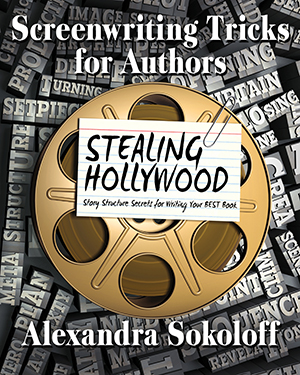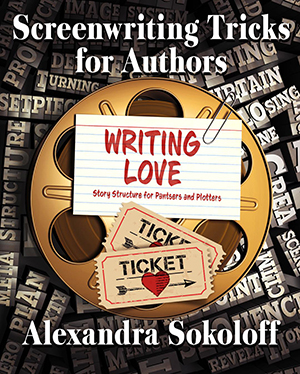First Chapters are a very fraught subject. Writers agonize over them. I don’t have to tell you! The pressure is enormous, isn’t it? The first chapter sells your submission and it sells your book once it’s published. It carries the whole weight of the book with it. It has to convey mood, tone, genre, foreshadowing, stakes, urgency, main character need and desire, setting, theme (especially, especially, especiallytheme) and the absolute sense that this is a journey that we want to take. And a dozen other things beyond that. (Note that I didn’t mention “a great first line.” I am not one of the cult of the first line.)
So how do we approach writing—or rewriting one?
(And if you’re writing a script, same advice goes, throughout this post.)
The best advice I can give you here is: Don’t sweat this one on a first draft. Or even maybe on the second.
Seriously.
Despite that scene we’ve all seen in practically any Hollywood movie with a writer character in it, there is no law that says you have to start your book by sitting down at your keyboard, cracking your knuckles, and typing “Chapter One.”

Your opening chapter might be the last thing you end up writing. You may be reading a first of second or third draft and find a chapter halfway through the book that you realize needs to go first.
But that doesn’t mean you shouldn’t be thinking about it, keeping it cooking on the back burner. And maybe you’re down to the wire and need some inspiration.
So here’s an exercise to help.
I’m sure you all have TBR (“to be read”) piles. Around our house these are worse than average, because we’re a two-author household. We both have hundreds of books on our Kindles for our own research and pleasure, but we also get sent tons of physical books to blurb by publishers and friends, and to add to the chaos Craig programs two book festivals and consults on others—so you can only imagine the submissions by panel hopefuls! When I was a full-time screenwriter, I had similar stacks of scripts.
So make use of these treasures!

1. Take 10 books from your TBR pile or shelf that you might feel like reading. Read just the opening chapter of each. Separate them into piles, kind of like with Marie Kondo:
-
Not grabbing me.
-
Interesting, I could go further.
-
Never mind the homework, I’m reading THIS one. Go away.
2. Make a list of the books in that third pile, and then add first chapters by your own favorite authors that just turn you inside out. Keep listing until you have a Master List of ten books.
There is no question that reading a bunch of — well, anything — in a row gives you a good idea of what to do and not to do in executing that particular thing. But it’s doing the next work that will really get you far.
3. Take a look at what those storytellers are doing in those chapters. Break it down. Really look at it from every angle. What is it exactlythat makes you commit in a few pages, a few sentences, a few words, to those authors and those stories?
I’ve reread The Firm about a dozen times and that first chapter still just knocks me out every time. Perfect thriller opening. The Shining, The Treatment, Rosemary’s Baby— with some books I’ve typed out the whole first chapter for myself to see exactly how every word and sentence is working to make me react the way I do. It works!
4. And then — and this is only after you’ve finished your first draft and have celebrated mightily – look at your own first chapter and be ruthless with yourself.
Are you doing whatever it is that they are doing that you love so much? Are you? Really?
Or is there something that you might do… just a little more like the ones on your Master List?
Remember, a first chapter doesn’t have to be explosive or perfect. If an author has written a book worth reading, the first chapter will communicate that (partly because if it hasn’t, the author will have rewritten the chapter or started over with a new chapter that introduces the book convincingly).
Trust that you will do the same.
And then do it.
Remember to add your list of Best First Chapters and your notes on them to your Book of Master Lists!
And I would love to hear some of your favorite first chapters and opening scenes!
- Alex
From Screenwriting Tricks for Authors, © Alexandra Sokoloff
I’m posting rewriting strategies in my newsletter for December. Subscribe for free to get posts delivered to your inbox!
More on First Chapters in
- Stealing Hollywood, Chapters 31-32,
- Writing Love, Chapters 27-28.

Need some help? The Screenwriting Tricks for Authors workshop is now available online, as a self-paced course with all the videos, assignments, movie breakdowns and personalized feedback you need to get that book written this year. In four parts, and you only pay for what you use.
Small group coaching also available in The Writers’ Room.




